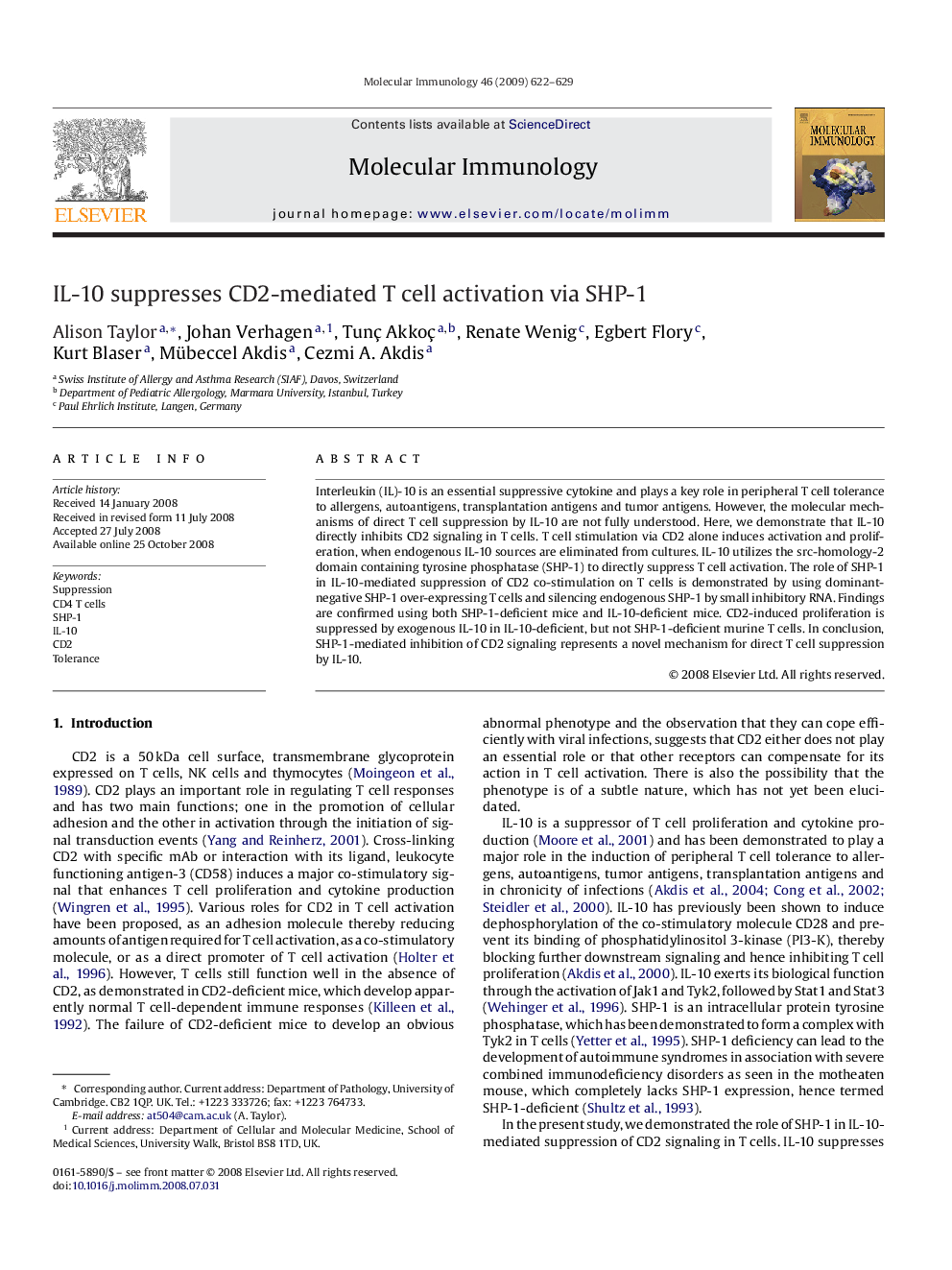| کد مقاله | کد نشریه | سال انتشار | مقاله انگلیسی | نسخه تمام متن |
|---|---|---|---|---|
| 2832336 | 1163836 | 2009 | 8 صفحه PDF | دانلود رایگان |

Interleukin (IL)-10 is an essential suppressive cytokine and plays a key role in peripheral T cell tolerance to allergens, autoantigens, transplantation antigens and tumor antigens. However, the molecular mechanisms of direct T cell suppression by IL-10 are not fully understood. Here, we demonstrate that IL-10 directly inhibits CD2 signaling in T cells. T cell stimulation via CD2 alone induces activation and proliferation, when endogenous IL-10 sources are eliminated from cultures. IL-10 utilizes the src-homology-2 domain containing tyrosine phosphatase (SHP-1) to directly suppress T cell activation. The role of SHP-1 in IL-10-mediated suppression of CD2 co-stimulation on T cells is demonstrated by using dominant-negative SHP-1 over-expressing T cells and silencing endogenous SHP-1 by small inhibitory RNA. Findings are confirmed using both SHP-1-deficient mice and IL-10-deficient mice. CD2-induced proliferation is suppressed by exogenous IL-10 in IL-10-deficient, but not SHP-1-deficient murine T cells. In conclusion, SHP-1-mediated inhibition of CD2 signaling represents a novel mechanism for direct T cell suppression by IL-10.
Journal: Molecular Immunology - Volume 46, Issue 4, February 2009, Pages 622–629